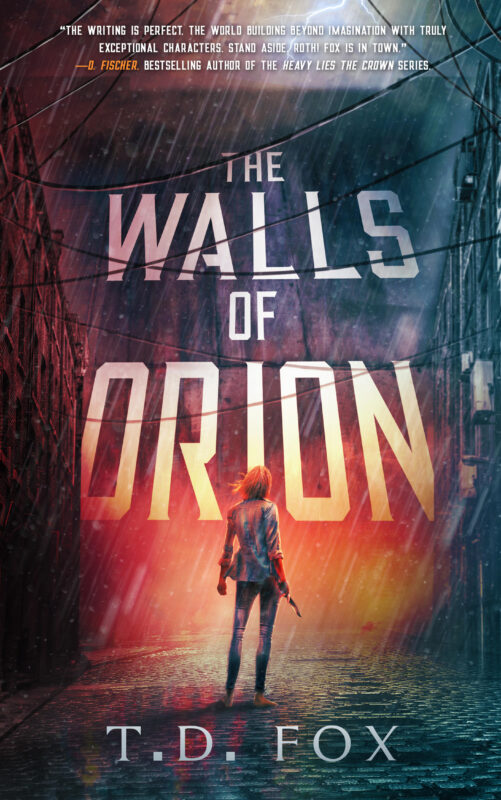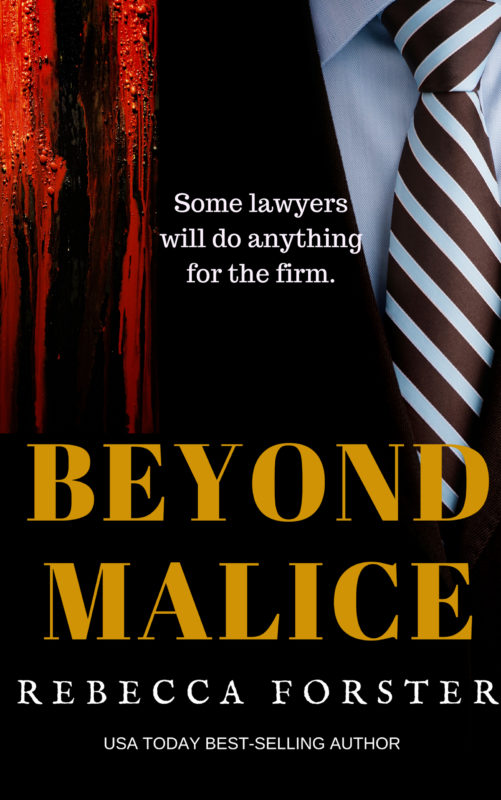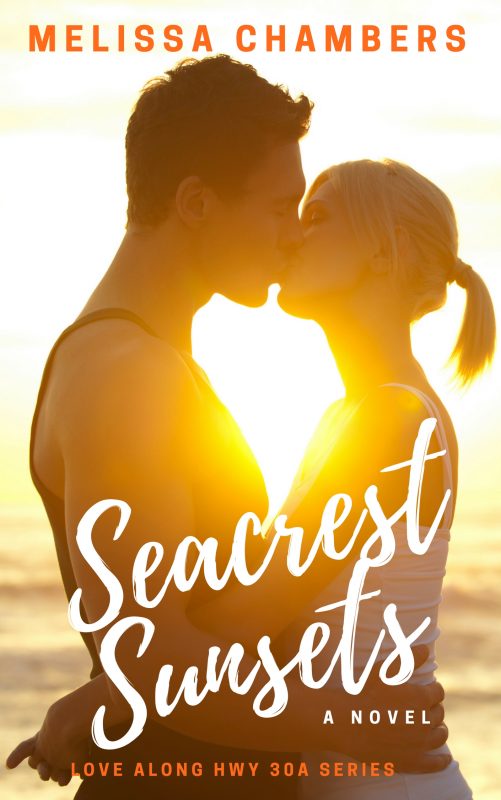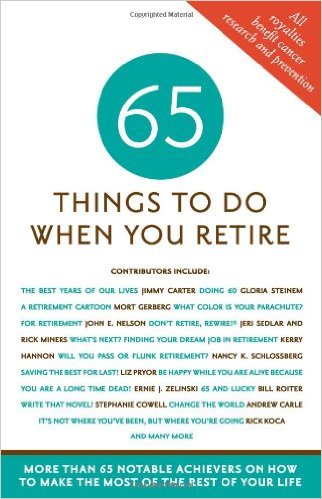The Dog Days of Summer, Birthdays, and Buttered Noses
August 1, 2017 by marianne h donley in category Apples & Oranges by Marianne H. Donley tagged as birthdays, buttered noses, dog days, Family, grandparents, hot, Summer The Dog Days of Summer isn’t just an expression that indicates summer days so hot dogs are driven mad. It’s an actual astronomical event when, Sirius, the dog star rises in conjunction with the sun. The Dog Days are listed as starting on July 3rd and continuing through August 11th.
The Dog Days of Summer isn’t just an expression that indicates summer days so hot dogs are driven mad. It’s an actual astronomical event when, Sirius, the dog star rises in conjunction with the sun. The Dog Days are listed as starting on July 3rd and continuing through August 11th.
In my family, the Dog Days of Summer marked the beginning of birthday season. I have three brothers and three sisters. Then there are my children, nieces and nephews, in-laws (or as we insist out-laws) and now the grandchildren and grandnieces and grandnephews. A significant number of them have birthdays in July and August.
Birthdays
Birthdays around our place were always a bit different. With so many relatives we seldom had friends to our birthday celebrations. We rarely severed cake but rather baked from scratch (including the crust) birthday pie. There were favorites – quite a few apple pies, pumpkin (made three days ahead of the feast and refrigerated to the proper coldness), lemon meringue, peach, and rhubarb for my mother.
And when my mémère (French for grandma) was alive, if it was your birthday, you got your nose buttered. It was supposed to make you side through the year to your next birthday.

Mémère and Pépère Hebert 1973
Now Mémère assured us this was an old French custom, but I never met any other family who practiced nose buttering –even the few friend of mine when we were growing up who also had a mémère and pépère.
Buttered Noses
So, a few years ago I googled it. Sure enough, other families butter noses, but the articles I read listed the custom is either Scottish or Irish. I suspect Mémère would be upset by these claims as she was very proud of her French ancestry even though the family arrived in the New World well before there was a United States. She and Pépère spoke French at home, and my dad and his siblings didn’t learn English until they went to school.
I must admit that she frequently got things wrong. She was also very proud of being born on June 13th and every year would tell us that she just missed being born on Friday the 13th (it happened to be a Saturday that year). But when she died my aunts found her birth certificate. She wasn’t born on June 13th, that was the day she was baptized. She was really born two days earlier and forever celebrated her birthday on the wrong day.
Wrong day
My aunts were upset, but I would like to think Mémère would not have cared if she had ever noticed. She was happy to have a pie baked by my mom, and she would laugh her head off when we would sneak up and butter her nose so she could slide through another year.
Does your family have different birthday customs? What are they?

Marianne H. Donley makes her home in Tennessee with her husband and son. She is a member of Bethlehem Writers Group, Romance Writers of America, OCC/RWA, and Music City Romance Writers. When Marianne isn’t working on A Slice of Orange, she might be writing short stories, funny romances, or quirky murder mysteries, but this could be a rumor.
If you want to know more about the Dog Days of Summer here are some links:
http://www.refinery29.com/2017/07/162153/dog-days-of-summer-spiritual-meaning
https://www.almanac.com/content/what-are-dog-days-summer
https://en.wikipedia.org/wiki/Dog_days
https://www.space.com/12624-dog-days-summer-sirius-star-skywatching-tips.html
What Does the Extra Squeeze Team Think About Prologues?
July 31, 2017 by marianne h donley in category The Extra Squeeze by The Extra Squeeze Team, Writing tagged as advice, prologues, The Extra Squeeze, writing
Ever wonder what industry professionals think about the issues that can really impact our careers? Each month The Extra Squeeze features a fresh topic related to books and publishing.
Amazon mover and shaker Rebecca Forster and her handpicked team of book professionals offer frank responses from the POV of each of their specialties — Writing, Editing, PR/Biz Development, and Cover Design.
What is the publisher/agent attitude towards including a prologue in a romance novel? In ALL my writing classes, workshops, etc (other than romance), the prologue is hated and absolutely discouraged, yet it seems routine with romance. So . . .
What Does the Extra Squeeze Team Think About Prologues?

Rebecca Forster
USA Today Bestselling author of 35 books, including the Witness series and the new Finn O’Brien series.
When I started my career I wrote in a genre I had never read, pitched with a partial and made simultaneous submissions to multiple editors and agents. In other words, I broke every ‘rule’ in the book so I might not be the best one to ask about the prologue rule. That being said, I’m happy to give an opinion – of which I have many if you ask anyone who knows me.
I believe that ‘they’ are not as good a judge of your work as ‘you’. I believe that if there were hard and fast rules about what editors like we wouldn’t have books like “The Girl With The Dragon Tattoo” or genres like chic lit. I believe that if a prologue turned off editors/readers the following books would never have been published or become profitable.
- “Loving Frank” by Nancy Horan
- “The Piano Tuner” by Daniel Mason
- “Montana 1948” by Larry Watson
- “The Name of the Rose” by Umberto Eco
- “Orphan Train” by Christina Baker Kline
- “Water for Elephants” by Sara Gruen
- “The Hours” by Michael Cunningham
- “Shutter Island” by Dennis Lehane
- “The Alchemist” by Paulo Coelho
- “The Promise” by Ann Weisgarber
Yes, prologues are often skipped but if an author wishes to write one then it is the author’s job to make it a compelling piece of the whole. The question is not just is it necessary, but is it critical?
P.S. I have used prologues in three out of my 30+ books. All were published with the prologue intact.
P.S.S. Harry Potter also has a prologue.
Robin Blakely
PR/Business Development coach for writers and artists; CEO, Creative Center of America; member, Forbes Coaches Council.
From a publicity point of view, I care an inordinate amount about the cover of your book and the description of your book; less about whether or not you have a prologue. The only reason the prologue matters to me is if it helps sell the story.
That may sound shallow and even annoying to the craftsman who created the work, but it shouldn’t offend you. The most important part of the PR job depends on the cover and the description…if the first few pages can’t make that cover and description come to life, get rid of it. The first few pages need to pull readers in and keep them engaged in the book. As a creator, if the devise you choose to do that monumental task is a prologue, I support your choice. Just make sure it works and it’s as finely crafted as you can make it. I suspect that somewhere along the way the prologue got a bad name for itself because of shoddy work by writers who didn’t know how to use the device.
If you want to use a prologue, study finely crafted prologues. I want yours to dovetail with your story and with your cover and your book description. It’s all about craftsmanship. In that way, books are like furniture…I only want drawers in furniture if the drawers are constructed properly with joints that dovetail, instead of joints that are cheaply glued or tacked together and fall apart. Books or desks with drawers, If they are made well and work, they do exactly what I need for them to do.

Jenny Jensen
Developmental editor who has worked for twenty plus years with new and established authors of both fiction and non-fiction, traditional and indie.
Prolog: Greek -before, Logos – word
Prologs are out of vogue. Maybe that’s because we want to jump right into a story, not mess about with seemingly extraneous details. More likely it’s because
Prologs have been abused. So often they’re just an info dump – more of a distraction than a component necessary to enjoying the story. I suspect that’s why publishers and editors dislike and discourage Prologs.
Contemporary Romances are stories in the here and now. That’s an aspect of the genre I really love. I want to walk right in and meet the players and watch the love story as it plays out. There really isn’t any need for a set up, a prolog, an information dump. I want to be living the story as it unfolds for the protagonists and the details should be woven into dialog and narrative and keep the story in the active present.
If you must include a prolog first ask yourself:
•Can the reader understand and enjoy the story without this info
•Is it compelling
•Can the info included in the Prolog be conveyed throughout the story in dialog or narrative
•And the question I think is most important for a Prolog: is the information contained so important that the reader must keep that in mind as the narrative unfolds if we are to understand the story. That’s the only reason I can see for a prolog.
But you are the author and this is your story. If a prolog will strengthen the work, then by all means include one. The creative process should not be subject to the whims of fashion. Just be absolutely certain that prolog is necessary.
Let us know what you think about prologues. Do you love them? Do you hate them? Do you read them?
This month’s extra squeeze topic was suggested by APRYL MOHAJERRAHBARI. Thank you Apryl, we hope we answered your question.
If you have a question or topic you would like the Extra Squeeze Team to tackle, please use this contact form.
Things That Make Me Go Mmmrrh … I Celebrate an Amazing Lady
July 27, 2017 by A Slice of Orange in category Things That Make Me Go Mmmrrh . . . by Geralyn Corcillo, Writing tagged as Arlene Miller Creative Writing, birtday, birthdays, Nerdy Girl Express, poet, poetry, reviews, Tracy Miller I am a very lucky duck to know book reviewer and entertainment journalist Tracy Miller
I am a very lucky duck to know book reviewer and entertainment journalist Tracy Miller ![]() Tracy is also a gifted and prolific poet who has published over 20 books of poetry! After working diligently for over two decades as a lawyer (after winning full scholarships to Temple and University of Pennsylvania Law School), she is now fulfilling her life-long dream of writing full time. And Tracy doesn’t just write poetry and reviews of books and television – she uses her talent to write birthday poems for people she knows, admires, remembers, as well. On July 4, she and her twin sister Stacy celebrated their birthdays, so I wrote Tracy her very own birthday poem and pasted it all over Facebook this past July 4 . And Here is the birthday poem I wrote for her:
Tracy is also a gifted and prolific poet who has published over 20 books of poetry! After working diligently for over two decades as a lawyer (after winning full scholarships to Temple and University of Pennsylvania Law School), she is now fulfilling her life-long dream of writing full time. And Tracy doesn’t just write poetry and reviews of books and television – she uses her talent to write birthday poems for people she knows, admires, remembers, as well. On July 4, she and her twin sister Stacy celebrated their birthdays, so I wrote Tracy her very own birthday poem and pasted it all over Facebook this past July 4 . And Here is the birthday poem I wrote for her:

A peculiar Lady stands in line
At Whole Foods and the bank.
And if you try to suss her out,
You’re sure to draw a blank.
She speaks into a hand-held mike
And says the strangest things
Of plots and tropes and characters
And poetry that sings.
Her mind’s forever active
And her heart’s always replete.
She’s composing all the live-long day
Her demons to defeat.
She celebrates the lives, the art,
The love both here and gone;
The memories she yet holds close
Their might she pushes on.
She’s like a warm and searching poker
Stirring ashes ‘neath the grate
To find the embers burning there
And make them glow. But wait-
No, not a piece of iron
To grow cold when set aside.
But a lively torch that catches flame
To light the air on which it glides.
Like a Firefly she bops along
Brightening the dark,
Building fires or fanning flames, or
Nurturing a spark.
That well sprung magic of her own …
Oh! Such poetry transports.
To be precious, mentioned, known so well ..
Or just to read these dear reports!
It’s not just about her poems though
That makes her heaven-sent.
The prose she writes in her reviews
Is truly incandescent.
To know that someone’s work reached out
And lit another fuse …
To share the secret, bounding joy
Of audience and muse!
When someone’s efforts speak to her
She tells it to the world
In such detail you’ve never read
Creation is unfurled.
Writing is her full-time gig
After decades of the law.
She made her precious dream come true.
Tracy Miller I applaud!
Tracy, Girl, I know that life
Has hurt along the way.
But know that I am grateful
You and Stacy have this day!
Enjoy Tracy’s work on the website she’s dedicated to her mother, Arlene Miller Creative Writing and read her reviews of books and television in the online magazine The Nerdy Girl Express.

When she was a kid in Scranton, Pennsylvania, Geralyn Vivian Ruane Corcillo dreamed of one day becoming the superhero Dyna Girl. So, she did her best and grew up to constantly pick up litter and rescue animals. At home, she loves watching black & white movies, British mysteries, and the NY Giants. Corcillo lives in a drafty old house in Hollywood with her husband Ron, a guy who’s even cooler than Kip Dynamite.
Monster Revision & Deep POV: Suzanne Johnson – OCCRWA August Online Class
July 23, 2017 by Linda McLaughlin in category Online Classes tagged as Monster Revision & Deep POV, OCC/RWA Online Class, point of view, revisions, Susannah Sandlin, Suzanne JohnsonI’m excited about the August OCC/RWA Online Class, Monster Revision & Deep POV, with instructor Suzanne Johnson, who also writes as Susannah Sandlin. I have a manuscript in mind I want to tackle.

Pull out that WIP, ready-to-revise manuscript, or even a chapter from an already-published book, and get ready to dive into “Monster Revision,” an intensive one-pass revision system that’ll take you from Draft Zero to Done.
In this 30-day workshop, we’ll cover a one-week overview series of lessons, followed by three weeks of techniques that will leave you with a lot of tools in your revision toolbox. You’ll get individual feedback on your posted homework (yes, homework!), and I’ll work on a revision of one of my WIPS as we go through the course as illustration.
Part One:
* The Monster Revision Process: It’s easier than you think. Not fast, but not rocket-science.
* The Opening Scene Test.
* The Action-Reaction Test.
Part Two:
Warning: There will be color-coding. Take a deep breath and pull out those highlighters.
For the remainder of the class, we’ll take a sample chapter or two from your manuscript and massage it till it hurts. (You can try doing a whole manuscript during the class but it’ll be more effective to do the techniques on one or two chapters.)
We’ll be covering:
- Methodology and color-coding, and why deep POV is an important part of revision.
- Setting and description, including timeline, continuity, and backstory quicksand.
- What’s important to show, and what is better told.
- Dialogue as Action, and isolating character voice.
- Internal dialogue: pace, voice.
- Emotion: raw, ugly, visceral, internal.
- The color wheel.
- Read to the dog.
- DIY Toolbox: manual and online.
About the Instructor:
Suzanne Johnson was happily ensconced in New Orleans as a university magazine editor when Hurricane Katrina sent her adopted hometown underwater. She took her Katrina experiences, added wizards and magic (and the sexy undead pirate Jean Lafitte), and began what has become the Sentinels of New Orleans urban fantasy series published by Tor Books. Writing under the name Susannah Sandlin, she also writes award-winning paranormal romance, including the popular Penton Legacy series for Montlake Romance, and romantic suspense and thrillers, including two series, The Collectors and Wilds of the Bayou, also for Montlake.
Suzanne grew up in Alabama halfway between the Bear Bryant Museum and Elvis’s birthplace and lived in New Orleans for fifteen years, so she has a highly refined sense of the absurd and an ingrained love of college football and fried gator on a stick. She currently lives in Auburn, Alabama, where she is a full-time author.
Enrollment Information:
This is a 4-week online course that uses email and Yahoo Groups. If you do not have a Yahoo ID you will be prompted to create one when you join the class, but the process is not difficult. The class is open to anyone wishing to participate. The cost is $30.00 per person or, if you are a member of OCCRWA, $20.00 per person.
Enroll here: http://occrwa.org/classes/august-online-class/
Linda McLaughlin
OCC/RWA Online Class Co-coordinator
The Character Must Die
July 22, 2017 by Veronica Jorge in category Write From the Heart by Veronica Jorge tagged as characters, letting go, Veronica Jorge, writing I killed one of the characters in my novel.
I killed one of the characters in my novel.
(It was more like two, but I have no qualms about the second one.)
I came up with a death scene I really liked and just had to use it, so someone had to “go.”
I’m still not sure if it was in the best interest of the story, or if I’m just stuck on having to use a particular description.
As I reflect on the sequence of events and the wording, and debate the character’s fate; to live or not to live? I think about language in general and the nuances contained therein.
The English “goodbye”, like the characters in a book, can be so finite. Here today, gone tomorrow.
In contrast, parting words in other languages encompass a world of possibilities of that which is yet to be experienced. Whether it’s, auf wiedersehen in German, arrivederci in Italian, or hasta luego in Spanish, each expresses the probability, and the hope, that we will meet again. Even the Japanese rarely use sayonara, unless it really is “the end.”
 In life, as in writing and in reading, I prefer the meanings that other languages provide for that interim we call separation. And I would like to think that the characters we create in our imaginations, that eventually inhabit the pages of a book, continue on, not only in our own minds, but in the minds, and perhaps the hearts, of our readers.
In life, as in writing and in reading, I prefer the meanings that other languages provide for that interim we call separation. And I would like to think that the characters we create in our imaginations, that eventually inhabit the pages of a book, continue on, not only in our own minds, but in the minds, and perhaps the hearts, of our readers.
So, if I must terminate one of my characters, I’ll think of them as an old soldier who has faithfully served, and comfort myself with the words of General Douglas MacArthur.
“Old soldiers never die, they just fade away.”
And I realize that no matter how wonderful a story may be, as we grow and change, some of the characters we loved best as writers and readers do fade away and/or are replaced by others.
But, they never really die.
We meet them over and over again in the ways they have touched us and changed us, and have made us different and maybe, even better, for having met them.
See you next time on August 22nd.
 Veronica Jorge
Veronica Jorge
Manager, Educator, and former High School Social Studies teacher, Veronica credits her love of history to the potpourri of cultures that make up her own life and to her upbringing in diverse Brooklyn, New York. Her genres of choice are Historical Fiction where she always makes new discoveries and Children’s Picture Books because there are so many wonderful worlds yet to be imagined and visited. She currently resides in Macungie, PA.
Affiliate Links
A Slice of Orange is an affiliate with some of the booksellers listed on this website, including Barnes & Nobel, Books A Million, iBooks, Kobo, and Smashwords. This means A Slice of Orange may earn a small advertising fee from sales made through the links used on this website. There are reminders of these affiliate links on the pages for individual books.
Search A Slice of Orange
Find a Column
Archives
Featured Books
THE OTHER SIDE OF THE RIDGE, NEW YORK, 1930
Dan Rodin has once again transcended time...
More info →65 THINGS TO DO WHEN YOU RETIRE
Practical and entertaining advice about how to create a fulfilling retirement.
More info →Newsletter
Contributing Authors
Search A Slice of Orange
Find a Column
Archives
Authors in the Bookstore
- A. E. Decker
- A. J. Scudiere
- A.J. Sidransky
- A.M. Roark
- Abby Collette
- Alanna Lucus
- Albert Marrin
- Alice Duncan
- Alina K. Field
- Alison Green Myers
- Andi Lawrencovna
- Andrew C Raiford
- Angela Pryce
- Aviva Vaughn
- Barbara Ankrum
- Bethlehem Writers Group, LLC
- Carol L. Wright
- Celeste Barclay
- Christina Alexandra
- Christopher D. Ochs
- Claire Davon
- Claire Naden
- Courtnee Turner Hoyle
- Courtney Annicchiarico
- D. Lieber
- Daniel V. Meier Jr.
- Debra Dixon
- Debra H. Goldstein
- Debra Holland
- Dee Ann Palmer
- Denise M. Colby
- Diane Benefiel
- Diane Sismour
- Dianna Sinovic
- DT Krippene
- E.B. Dawson
- Emilie Dallaire
- Emily Brightwell
- Emily PW Murphy
- Fae Rowen
- Faith L. Justice
- Frances Amati
- Geralyn Corcillo
- Glynnis Campbell
- Greg Jolley
- H. O. Charles
- Jaclyn Roché
- Jacqueline Diamond
- Janet Lynn and Will Zeilinger
- Jaya Mehta
- Jeannine Atkins
- Jeff Baird
- Jenna Barwin
- Jenne Kern
- Jennifer D. Bokal
- Jennifer Lyon
- Jerome W. McFadden
- Jill Piscitello
- Jina Bacarr
- Jo A. Hiestand
- Jodi Bogert
- Jolina Petersheim
- Jonathan Maberry
- Joy Allyson
- Judy Duarte
- Justin Murphy
- Justine Davis
- Kat Martin
- Kidd Wadsworth
- Kitty Bucholtz
- Kristy Tate
- Larry Deibert
- Larry Hamilton
- Laura Drake
- Laurie Stevens
- Leslie Knowles
- Li-Ying Lundquist
- Linda Carroll-Bradd
- Linda Lappin
- Linda McLaughlin
- Linda O. Johnston
- Lisa Preston
- Lolo Paige
- Loran Holt
- Lynette M. Burrows
- Lyssa Kay Adams
- Madeline Ash
- Margarita Engle
- Marguerite Quantaine
- Marianne H. Donley
- Mary Castillo
- Maureen Klovers
- Megan Haskell
- Melanie Waterbury
- Melisa Rivero
- Melissa Chambers
- Melodie Winawer
- Meriam Wilhelm
- Mikel J. Wilson
- Mindy Neff
- Monica McCabe
- Nancy Brashear
- Neetu Malik
- Nikki Prince
- Once Upon Anthologies
- Paula Gail Benson
- Penny Reid
- Peter J Barbour
- Priscilla Oliveras
- R. H. Kohno
- Rachel Hailey
- Ralph Hieb
- Ramcy Diek
- Ransom Stephens
- Rebecca Forster
- Renae Wrich
- Roxy Matthews
- Ryder Hunte Clancy
- Sally Paradysz
- Sheila Colón-Bagley
- Simone de Muñoz
- Sophie Barnes
- Susan Kaye Quinn
- Susan Lynn Meyer
- Susan Squires
- T. D. Fox
- Tara C. Allred
- Tara Lain
- Tari Lynn Jewett
- Terri Osburn
- Tracy Reed
- Vera Jane Cook
- Vicki Crum
- Writing Something Romantic
Affiliate Links
A Slice of Orange is an affiliate with some of the booksellers listed on this website, including Barnes & Nobel, Books A Million, iBooks, Kobo, and Smashwords. This means A Slice of Orange may earn a small advertising fee from sales made through the links used on this website. There are reminders of these affiliate links on the pages for individual books.







































